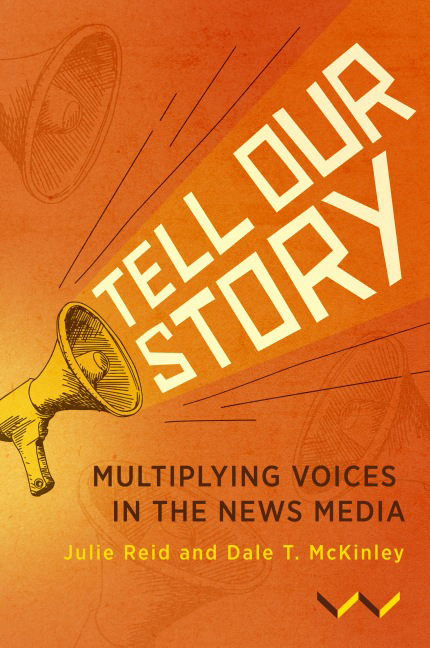Book contents
- Frontmatter
- Contents
- List of Figures
- Acknowledgements
- Abbreviations and Acronyms
- Chapter 1 The Importance of Voice and the Myth of the ‘Voiceless’
- PART 1 FROM THE INSIDE: VOICE(S) FROM THE GROUND
- Chapter 2 Community Perspective, Experience and Voice
- Chapter 3 Glebelands Hostel, Durban
- Chapter 4 Xolobeni, Eastern Cape
- Chapter 5 Thembelihle Community, Johannesburg
- PART 2 FROM THE OUTSIDE: DOMINANT VOICE
- Chapter 6 Dominant Media Telling and Elite Communication
- Chapter 7 The Political Economy of Dominant Power and Storytelling
- PART 3 NEW TRAJECTORIES FOR JOURNALISM AND VOICE(S)
- Chapter 8 Media Diversity and Voice(s)
- Chapter 9 Rethinking Media Freedom, Revamping Media Ethics
- Chapter 10 Planting the Seeds of Change
- Notes
- Bibliography
- Index
Chapter 10 - Planting the Seeds of Change
Published online by Cambridge University Press: 10 September 2020
- Frontmatter
- Contents
- List of Figures
- Acknowledgements
- Abbreviations and Acronyms
- Chapter 1 The Importance of Voice and the Myth of the ‘Voiceless’
- PART 1 FROM THE INSIDE: VOICE(S) FROM THE GROUND
- Chapter 2 Community Perspective, Experience and Voice
- Chapter 3 Glebelands Hostel, Durban
- Chapter 4 Xolobeni, Eastern Cape
- Chapter 5 Thembelihle Community, Johannesburg
- PART 2 FROM THE OUTSIDE: DOMINANT VOICE
- Chapter 6 Dominant Media Telling and Elite Communication
- Chapter 7 The Political Economy of Dominant Power and Storytelling
- PART 3 NEW TRAJECTORIES FOR JOURNALISM AND VOICE(S)
- Chapter 8 Media Diversity and Voice(s)
- Chapter 9 Rethinking Media Freedom, Revamping Media Ethics
- Chapter 10 Planting the Seeds of Change
- Notes
- Bibliography
- Index
Summary
Honest reporters approach every situation with humility: they find the people who don't get listened to and really listen to them. They get to know a place.
— Katharine Viner, editor-in-chief of The GuardianAn enriched and augmented understanding of voice(s), and a more broadly active practice of listening, particularly with respect to marginalised voices, is not only a necessary moral obligation on the part of the news media but also one that stands to positively benefit the media sector itself, as well as the socio-political space. Chapter 8 addressed how inclusive media diversity, which works as a simple but important model for the active inclusion of voice(s), would not only encourage higher levels of media content diversity available to media audiences, but would also go some way to bolstering the financial sustainability of large portions of the news media sector, while also adding to the news media’s all-important credibility.
But the broader inclusion of voice(s) in the mainstream news media sphere would do more than benefit the media sector alone. As previously discussed, particularly in the first chapter, the practice of listening journalism and the insertion of previously ignored voice(s) into the mainstream information landscape would provide greater opportunity for social cohesion, for problem solving and for a better informed citizenry, which could then possess a much more complete sketch of what is actually happening in the world. The collective conversations of societies are unlikely to arrive at solutions to the problems of our time when so many of us are able to see so small a portion of the whole picture. Inclusive media diversity, then, is about trying to make the world a better place.
LISTENING RESEARCH
Where are we at present with regard to making this happen? Firstly, within the news media sector a small collection of commendable media outlets, some of which have been mentioned in this book, assume the primacy of grassroots and marginalised voice(s) as central to the way they make news. But these are considerably limited in number and appear mostly as independent or community media outlets. Public service media and corporatised private media have yet to follow suit in any significant way. While these dominant media types still draw the bulk of audience figures, the largest majority of news media consumers are then exposed to crucially low levels of inclusive media diversity in their information diets.
- Type
- Chapter
- Information
- Tell Our StoryMultiplying Voices in the News Media, pp. 185 - 198Publisher: Wits University PressPrint publication year: 2020



